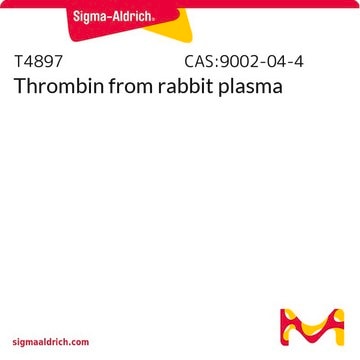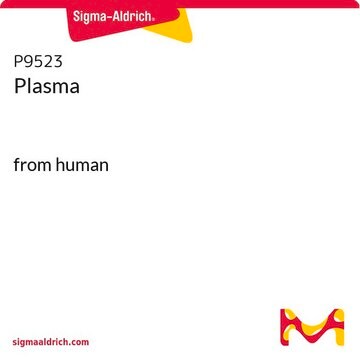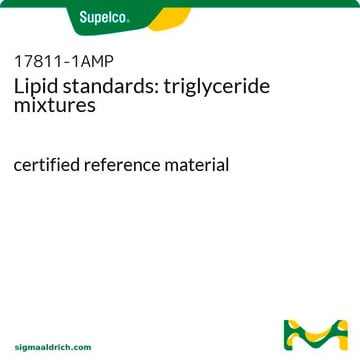44213
Thromboplastin from rabbit
Synonym(s):
Thromboplastin, Factor III, Thrombokinase
Sign Into View Organizational & Contract Pricing
All Photos(1)
About This Item
Recommended Products
biological source
rabbit
Quality Level
form
lyophilized solid
UniProt accession no.
storage temp.
2-8°C
Gene Information
rabbit ... F3(100009127)
Looking for similar products? Visit Product Comparison Guide
Application
Thromboplastin from rabbit has been used:
- as a standard in tissue factor procoagulant activity assay (TF-PCA)
- in pulmonary embolism assay
- as a positive control in clotting assay using human plasma
Biochem/physiol Actions
Thromboplastin (Tissue factor) is a transmembrane protein, the chief in vivo activator of blood coagulation that leads to thrombin generation and fibrin deposition. It is also important in the activation of the coagulation protease cascade and is involved in the lethality of sepsis.,
Thromboplastin from rabbit might be used to produce disseminated intravascular coagulation (DIC) in animal models.
Packaging
One vial contains 3-4 mg thromboplastin.
Reconstitution
Reconstitute the content of 1 vial in 4 ml 10 mm CaCl2
Signal Word
Danger
Hazard Statements
Precautionary Statements
Hazard Classifications
Resp. Sens. 1
Storage Class Code
11 - Combustible Solids
WGK
WGK 1
Personal Protective Equipment
dust mask type N95 (US), Eyeshields, Gloves
Certificates of Analysis (COA)
Search for Certificates of Analysis (COA) by entering the products Lot/Batch Number. Lot and Batch Numbers can be found on a product’s label following the words ‘Lot’ or ‘Batch’.
Already Own This Product?
Find documentation for the products that you have recently purchased in the Document Library.
Customers Also Viewed
J Erlich et al.
Infection and immunity, 67(5), 2540-2546 (1999-05-04)
Tissue factor (TF) is the major activator of the coagulation protease cascade and contributes to lethality in sepsis. Despite several studies analyzing TF expression in animal models of endotoxemia, there remains debate about the cell types that are induced to
M E Bromberg et al.
Proceedings of the National Academy of Sciences of the United States of America, 92(18), 8205-8209 (1995-08-29)
Several studies have established a link between blood coagulation and cancer, and more specifically between tissue factor (TF), a transmembrane protein involved in initiating blood coagulation, and tumor metastasis. In the study reported here, a murine model of human melanoma
Esterina D'Asti et al.
Methods in molecular biology (Clifton, N.J.), 1458, 39-58 (2016-09-02)
Angiogenesis represents one aspect in the complex process that leads to the generation of the vascular tumor stroma. The related functional constituents include responses of endothelial, mural, bone marrow-derived, and resident inflammatory cells as well as activation of coagulation and
Line Olrik Berthelsen et al.
Thrombosis research, 126(4), 337-344 (2010-07-20)
Validation of animal models of disseminated intravascular coagulation (DIC) to human DIC is crucial in order to translate findings in research models to treatment modalities for DIC in humans. ISTH classifications of overt and non-overt human DIC have proven to
Nan Zhang et al.
The Journal of experimental medicine, 216(6), 1291-1300 (2019-05-03)
Macrophages resident in different organs express distinct genes, but understanding how this diversity fits into tissue-specific features is limited. Here, we show that selective expression of coagulation factor V (FV) by resident peritoneal macrophages in mice promotes bacterial clearance in
Our team of scientists has experience in all areas of research including Life Science, Material Science, Chemical Synthesis, Chromatography, Analytical and many others.
Contact Technical Service













